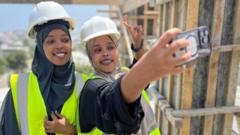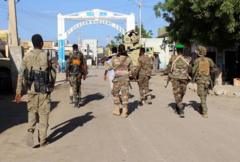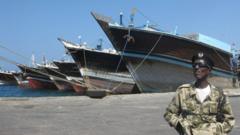Construction is flourishing in Somalia's capital, and at the forefront of this transformation are two women, Fathi Mohamed Abdi and Saadia Ahmed Omar. Both 24 years old and skilled engineers, they are helping to redesign Mogadishu's skyline, managing high-profile projects, including a 10-story apartment complex in the Hodan District.
From their early careers, they faced skepticism due to their gender. "When I started, people doubted me," said Ms Abdi, chief operating officer at Arkan Engineering Services. Now, she and Ms Omar are among the few women making strides in a field where only 5% of engineers are female. Their work symbolizes hope and resilience amid the city's tumultuous history, filled with civil unrest since the collapse of the Somali government in 1991.
As the buildings rise, so does Mogadishu's future. The demand for skilled engineers is undeniable, with over 6,000 structures built in the last five years, fueled by diaspora investments and improved security. Ibrahim Abdi Heyle, from the Somali Engineers Association, emphasizes the importance of female engineers in meeting the growing demand, stating, “They are not only welcomed but also vital.”
Despite rapid urban development, the shift raises concerns among long-time residents and architects who fear the loss of Mogadishu's historical charm and worry about the quality and safety of newly constructed buildings. Criticisms regarding unregulated construction and inadequate safety measures underscore the need for improved oversight.
Even with these tribulations, Abdi and Omar remain hopeful and determined. Amidst safety concerns, they continue to advocate for women's roles in engineering. They are not only building structures; they are constructing a new narrative about women in their society.
As Mogadishu undergoes rapid transformation, it faces infrastructure challenges like inadequate sewage systems and potential water shortages due to unregulated borehole drilling. Experts warn of long-term environmental impacts from the construction boom, suggesting that a coordinated approach to urban planning is essential.
Despite facing threats from militant groups, the ambition of Mogadishu's engineers remains undeterred. They envision a city that serves as a model for post-conflict reconstruction and urban development.
As Ms Omar stated, “When I walk through the streets and see buildings I helped construct, I feel proud." Both women illustrate that their mission goes beyond engineering; it’s about cultivating a future where women not only participate in but lead the development of their communities—proving that they can design and manage the urban landscapes of tomorrow.





















